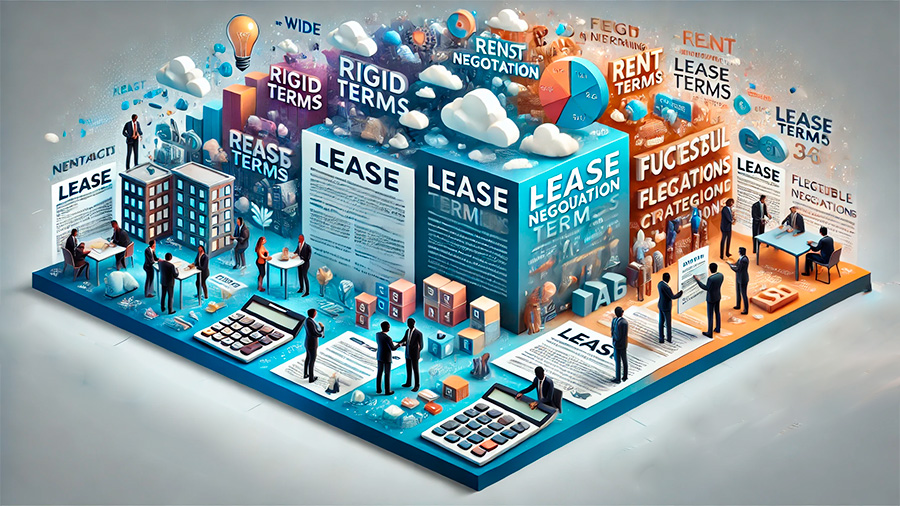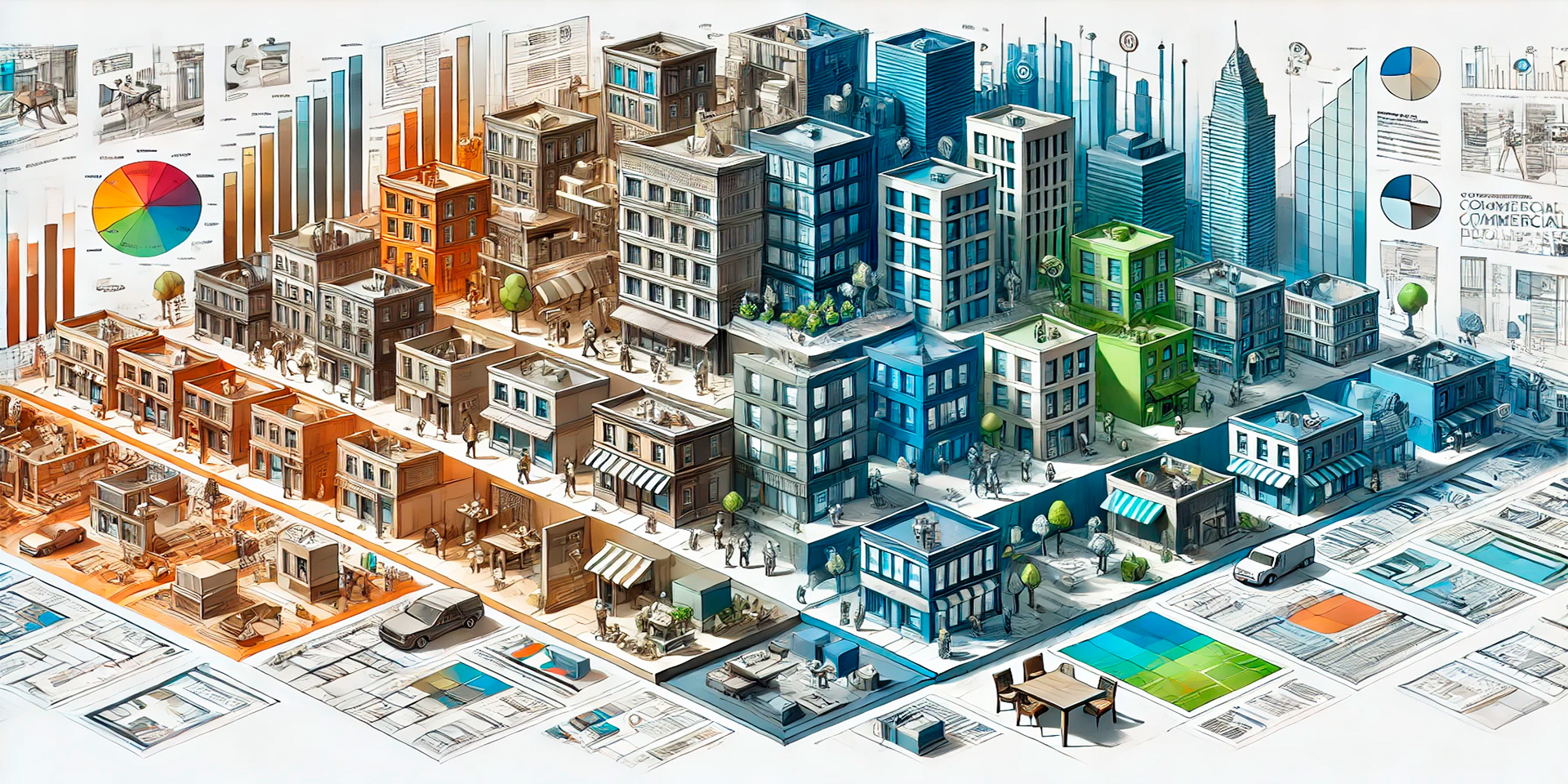Choosing the right commercial premises for your business is a critical decision that can significantly impact its success. Whether you’re opening a new business or expanding an existing one, the location and type of premises you choose can affect everything from customer foot traffic to operational efficiency. In today’s competitive market, selecting the right commercial space requires a balance between your business needs, financial considerations, and the growth potential of the location. In this article, we will explore how to choose the ideal commercial premises that align with your business goals and set you up for long-term success.
Understand Your Business Needs
Before you begin your search for commercial premises, it’s essential to have a clear understanding of your business needs. Different businesses require different types of space, and knowing exactly what you need will help narrow your options and ensure you make the right choice.
Consider how much physical space your business requires. This depends on the type of business you run and the number of employees or clients you expect to accommodate. Retail businesses, for example, may need spacious storefronts with enough room for merchandise displays and customer browsing areas, while an office-based business may focus on functional workspaces with meeting rooms and collaborative areas. Make sure to factor in both current needs and potential future growth so that you don’t outgrow the space too quickly.
Location is a key factor in choosing the right commercial space. For retail businesses, choosing a high-traffic location is critical to attracting customers. Consider foot traffic, visibility from major roads, and proximity to complementary businesses. For office spaces, you may prioritize convenience for employees, such as easy access to public transportation or parking options. The right location can significantly impact customer acquisition, employee satisfaction, and overall business growth.
Understanding the specific layout your business requires is also crucial. Some businesses may need open floor plans for flexibility, while others may require segmented areas for different departments or private rooms for client meetings. Additionally, if your business involves handling physical goods, consider whether you need storage areas, loading docks, or warehouse space. Ensuring that the layout supports your operational needs will improve efficiency and productivity.

Evaluate the Location’s Growth Potential
While the current state of a location is important, it’s equally essential to assess its growth potential. Choosing a commercial premises in an area poised for economic or population growth can provide your business with long-term benefits, including an increasing customer base, higher property values, and more opportunities for expansion.
Research the area’s economic outlook to understand whether it is likely to attract more businesses and residents in the coming years. Local government plans for development, infrastructure improvements, or new business parks can indicate future growth. An area experiencing rapid development may provide your business with more opportunities for networking, partnerships, and customer acquisition.
Demographics play a major role in determining the suitability of a commercial location. If your business caters to a specific target market, make sure the local population aligns with your customer profile. For example, a high-end boutique may do well in a wealthier neighborhood, while a family-oriented business might thrive in an area with many young families. Understanding local demographics helps ensure that you’re placing your business in a community that will support and engage with your offerings.
It’s important to understand the competitive landscape of the area you’re considering. Look into whether the location is saturated with businesses offering similar products or services, as too much competition may make it difficult to stand out. On the other hand, being close to complementary businesses can drive more traffic to your premises. For example, a café near office spaces or a beauty salon next to a shopping center may benefit from nearby businesses attracting the same clientele.
Assess Your Financial Considerations
One of the most important aspects of choosing the right commercial premises is ensuring that it fits within your budget. Beyond the cost of rent or purchasing the property, there are other financial factors to consider, such as utilities, maintenance, and insurance. Carefully assess your financial situation and long-term projections to ensure you’re making a sustainable choice.
Rent and lease terms are some of the most significant costs associated with commercial premises. It’s crucial to ensure that the monthly rent or lease payments fit within your business’s financial projections. Some landlords may offer incentives such as rent-free periods or reduced rates for longer lease agreements, so it’s worth negotiating for favorable terms. Make sure the lease term aligns with your business goals—opting for a long-term lease can provide stability, but a shorter lease may give you more flexibility if you anticipate needing to relocate or expand.
Don’t overlook the additional costs that come with leasing or buying commercial premises. Property taxes, insurance, utilities, and maintenance fees can add up quickly and significantly impact your bottom line. Additionally, some commercial spaces may require renovations or updates to meet your business’s needs, which can incur extra expenses. Make sure you have a clear understanding of all associated costs before committing to a property.
If you’re buying commercial property, the long-term investment potential should be factored into your decision. A well-located property may appreciate in value over time, providing financial returns beyond the operational benefits. However, owning commercial property also comes with additional responsibilities, such as managing property taxes, repairs, and building maintenance, so it’s important to consider whether ownership aligns with your long-term financial strategy.

Negotiate Favorable Lease Terms
Once you’ve identified a suitable property, negotiating the lease terms can make a significant difference in your business’s financial health. Many lease agreements are negotiable, and securing favorable terms can help reduce costs and provide more flexibility as your business grows.
Start by negotiating the rent amount, particularly if you’re moving into a property that has been on the market for a while. Landlords may be willing to offer reduced rates, especially if you’re signing a long-term lease. You can also negotiate for rent-free periods at the beginning of the lease to help offset the costs of moving in and setting up your business.
Ensure that you fully understand what is included in the lease, particularly when it comes to maintenance and utilities. Some commercial leases are “gross leases,” meaning the landlord covers property taxes, insurance, and maintenance, while others are “net leases,” where tenants are responsible for these additional costs. Clarify who is responsible for what to avoid unexpected expenses.
If you anticipate needing flexibility, negotiate for options such as a lease renewal clause or the ability to sublet the space. A lease renewal clause can help you lock in favorable rates if you decide to extend your lease, while subletting gives you the option to rent out part of the premises if your business needs change.
Compliance with Zoning Laws and Regulations
Zoning laws dictate how specific properties can be used, and it’s crucial to ensure that your chosen commercial premises complies with these regulations. Before signing a lease or purchasing a property, confirm that the location is zoned for your type of business. Zoning laws vary by city and can restrict certain activities, such as operating a restaurant, retail store, or manufacturing facility, in specific areas.
Beyond zoning, you must also ensure that the property complies with local health and safety regulations. This may include meeting fire codes, accessibility requirements, and health department standards if applicable to your business. Working with a commercial real estate agent or legal advisor can help you navigate these regulations and avoid potential legal issues down the line.
Plan for Future Growth
When choosing commercial premises, it’s important to think about your business’s future growth. While a space may meet your current needs, will it still be suitable if your business expands? Consider whether the property has room for physical expansion, such as adding more office space or increasing retail floor area, and whether the lease terms allow for flexibility.
If your business grows faster than expected, you may need to hire more employees, increase inventory, or expand operations. Planning for future growth now can help you avoid the need to move locations again in a few years, saving time and money. A commercial space that offers the potential for growth can also contribute to long-term success and stability.
Conclusion: Making the Right Choice for Your Business
Choosing the right commercial premises for your business involves a careful balance of evaluating your current needs, understanding the location’s growth potential, managing financial considerations, and planning for future expansion. By assessing factors such as space requirements, location, lease terms, and zoning compliance, you can make an informed decision that supports both your immediate business goals and long-term success. With the right commercial space, your business will be well-positioned to thrive in a competitive market.

